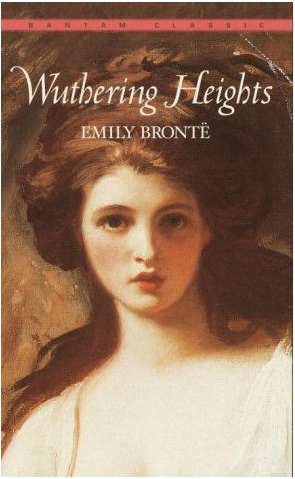What is useful when writing letters as other characters is using dialect. In some books, dialect is reflected in the way certain words are spelled. They won't be the correct spelling, but rather a phonetic spelling. Some modern day examples would be:
Gonna (Going to)
Wanna (Want to)
Shoulda (Should have)
Obviously, these words are not spelled the same way, but you get a feel of how someone is talking. There are examples of this in classic literature or (if you listen carefully) you might be able to pick up on dialect while watching period dramas and can formulate how to spell the words just by sound.
 An example of dialect in classic literature is in Wuthering Heights*. There is a character named Joseph that is a servant (not sure if he's in any of the movies, but he is in the book) who talks with a very thick dialect. Here is a sample of his dialogue:
An example of dialect in classic literature is in Wuthering Heights*. There is a character named Joseph that is a servant (not sure if he's in any of the movies, but he is in the book) who talks with a very thick dialect. Here is a sample of his dialogue:"...Shame on ye! sit ye down, ill childer! there’s good books eneugh if ye’ll read ’em: sit ye down, and think o’ yer sowls!" (Chapter 3)
Because he is talking in a certain dialect that does not sound like, for instance, the Earnshaws that he works for, he would not sound like, "Shame on you! Sit down, ill children! There are good books enough for you if you will read them: sit down and think of your souls!" Writing it this way would not sound like the Joseph that is in Wuthering Heights.
It might help to form what you want to say in proper grammar and then add/replace dialect into your original sentence. For a sentence like:
"There are plenty of great books."
As Joseph, you might say:
"There's eneugh good books for ye to read."
There is more than one way to do this. Try experimenting with sentences and see what you come up with.
***
"I was afraid you would think I was taking a great liberty with you," said she, "in telling you all this. I have not known you long to be sure, personally at least, but I have known you and all your family by description a great while; and as soon as I saw you, I felt almost as if you was an old acquaintance..." (Chapter 22)
Right away, you notice that there was a grammatical error: it should be "I felt almost as if you were an old acquaintance". If you include these grammatical errors in your letter, they can really help your letter sound like it is coming from the character you are writing as. Be careful with this though. There are characters that use a lot of improper grammar, but there are also characters that only use enough to give the impression that they are not educated, but their bad grammar is not blatant. Take a look at your character's dialogue and see how their grammar is.
*Note: I am not fond of the book Wuthering Heights, but for our purposes here, it does a good job to show how to use dialect.
How helpful was this tip? If you have any questions, feel free to leave a comment. I'll try my best to help out.
God Bless,




Heehee, I am not fond of "Wuthering Heights" either, but I like Joseph's dialect (though it can be very hard to understand sometimes!)
ReplyDeleteI think the use of "was" for the second person was not considered ungrammatical in the eighteenth century. I found this article from 1892 with a lot of seventeenth and eighteenth century quotes from educated people using it, and searching Google Books for the phrase in general during the eighteenth century turns up a lot of results - for example, this play uses it over and over. I think it's like "ain't" - considered perfectly proper until it became colloquial.
ReplyDeleteIt was going out by the turn of the century, so I think it does show that Lucy is somewhat deficient, but it's more that she's deficient in class. She doesn't have bad grammar in general, she's just vulgar.
Sorry to get all pedantic!
Very good! :D I actually wrote a short story for English a few months ago from the perspective of a Black girl running away from her old master. It took me FOREVER to make her sound uneducated.
ReplyDeleteMimic of Modes,
ReplyDeleteI didn't know that about the 17th and 18th centuries. I mentioned Lucy because she was described as being illiterate and ignorant in the book. That is an interesting point, though. I'm wondering because she lacked a good education if her using "was" was a way to show she wasn't very educated (I also think there was another time she said "set" where she meant "sit) or if she was taught an older, obsolete way to form sentences (so she would be deficient in her way of speaking). Thank you for that information!
Thank you for this tip. Working on the dialect and grammar of a character can be tricky. For dialect especially you don't want to go overboard in spelling out the way they say words because then it's difficult for the reader to understand (as I had a hard time getting through even the first chapter of Wuthering Heights due to Joesph's dialect!). But sometimes even the occasional dropped word might hint at the character's background (such a throwing in the occasional "dunna ken" for a Scottish character or saying "Aye" instead of "Yes").
ReplyDeleteLucy's bad grammar always bugs me in the book. She may be ill educated but her uncle is a teacher so she cannot be wholly ignorant! :)